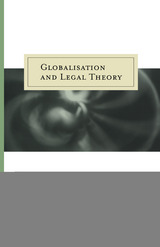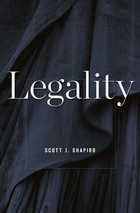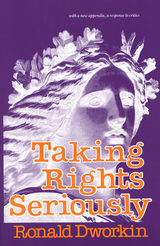

What is law? This question has preoccupied philosophers from Plato to Thomas Hobbes to H. L. A. Hart. Yet many others find it perplexing. How could we possibly know how to answer such an abstract question? And what would be the point of doing so? In Legality, Scott Shapiro argues that the question is not only meaningful but vitally important. In fact, many of the most pressing puzzles that lawyers confront—including who has legal authority over us and how we should interpret constitutions, statutes, and cases—will remain elusive until this grand philosophical question is resolved.
Shapiro draws on recent work in the philosophy of action to develop an original and compelling answer to this age-old question. Breaking with a long tradition in jurisprudence, he argues that the law cannot be understood simply in terms of rules. Legal systems are best understood as highly complex and sophisticated tools for creating and applying plans. Shifting the focus of jurisprudence in this way—from rules to plans—not only resolves many of the most vexing puzzles about the nature of law but has profound implications for legal practice as well.
Written in clear, jargon-free language, and presupposing no legal or philosophical background, Legality is both a groundbreaking new theory of law and an excellent introduction to and defense of classical jurisprudence.

What is law? What is it for? How should judges decide novel cases when the statutes and earlier decisions provide no clear answer? Do judges make up new law in such cases, or is there some higher law in which they discover the correct answer? Must everyone always obey the law? If not, when is a citizen morally free to disobey?
A renowned philosopher enters the debate surrounding these questions. Clearly and forcefully, Ronald Dworkin argues against the “ruling” theory in Anglo-American law—legal positivism and economic utilitarianism—and asserts that individuals have legal rights beyond those explicitly laid down and that they have political and moral rights against the state that are prior to the welfare of the majority.
Mr. Dworkin criticizes in detail the legal positivists’ theory of legal rights, particularly H. L. A. Hart’s well-known version of it. He then develops a new theory of adjudication, and applies it to the central and politically important issue of cases in which the Supreme Court interprets and applies the Constitution. Through an analysis of John Rawls’s theory of justice, he argues that fundamental among political rights is the right of each individual to the equal respect and concern of those who govern him. He offers a theory of compliance with the law designed not simply to answer theoretical questions about civil disobedience, but to function as a guide for citizens and officials. Finally, Professor Dworkin considers the right to liberty, often thought to rival and even preempt the fundamental right to equality. He argues that distinct individual liberties do exist, but that they derive, not from some abstract right to liberty as such, but from the right to equal concern and respect itself. He thus denies that liberty and equality are conflicting ideals.
Ronald Dworkin’s theory of law and the moral conception of individual rights that underlies it have already made him one of the most influential philosophers working in this area. This is the first publication of these ideas in book form.
READERS
Browse our collection.
PUBLISHERS
See BiblioVault's publisher services.
STUDENT SERVICES
Files for college accessibility offices.
UChicago Accessibility Resources
home | accessibility | search | about | contact us
BiblioVault ® 2001 - 2024
The University of Chicago Press









